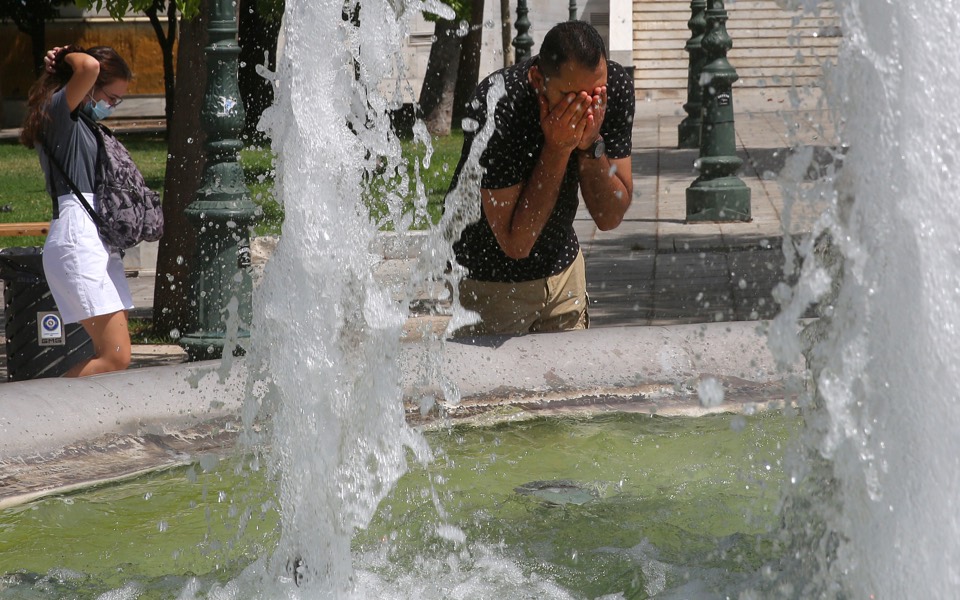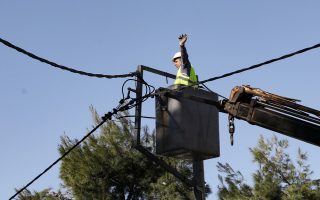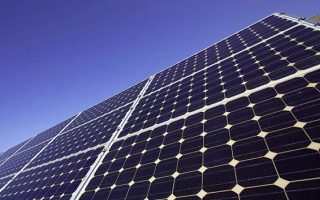Heatwave tests country’s infrastructure

The heatwave that has gripped Greece is not only testing the resilience of the public but the country’s power grid too as consumption is expected to reach a decade high on Tuesday, at 10,700 megawatts.
Tellingly, the Hellenic Electricity Distribution Network Operator (DEDDIE) and Public Power Corporation (PPC) have revoked employees’ leave, with some working shifts of more than 12 hours in adverse weather conditions at mines and lignite plants.
Currently on minimal reserves, the system has been in force since Saturday, when demand started to exceed 9,000 megawatts and gradually rose to 9,600 MW last night.
To cover demand all gas units are working at full capacity, as are all of PPC’s available units (Meliti, Megalopolis IV and Agios Dimitrios I-II-III-IV), with the exception of Unit V at Agios Dimitrios, where upgrade works are being carried out. The Megalopolis III unit had to reopen after nine months. It had been permanently closed within the framework of the delignification program.
Megalopolis IV reportedly ran into technical problems on Monday but is set to come back online on Tuesday.
In response, Prime Minister Kyriakos Mitsotakis called on the public to voluntarily conserve power, especially during peak hours.
“We are facing the worst heatwave since 1987… this has resulted in a significant burden on the system as demand has increased significantly,” Mitsotakis told journalists during a visit to grid operator DEDDIE’s headquarters in Kryoneri, East Attica, on Monday.
The prime minister, who also convened an extraordinary meeting with the leadership of the Energy and Environment Ministry, and power company officials said authorities had initiated all precautionary measures to avoid power cuts.
Mitsotakis said peak hours are from 1 to 3 p.m., but mainly the evening hours from 6-7 p.m. until 10-11 p.m.
“If we had to explain it in simple words, those are the times when, unfortunately, because the sun has set, we do not have at our disposal the significant energy produced by the photovoltaics that we have installed in the country,” he noted.
The appeal came as temperatures were forecast to rise as high as 46 degrees Celsius (115 Fahrenheit) in parts of the country on Monday.





